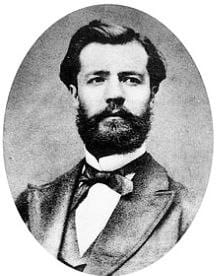

Henry Fayol’s Administrative Management Theory is a foundational concept in the field of management. Developed in the early 20th century, Fayol’s work focused on the overall management of organizations, with an emphasis on the role of managers and their administrative responsibilities. His approach was one of the first to define management as a set of activities that could be studied, understood, and applied systematically. Fayol is particularly well-known for outlining the 14 Principles of Management and the five key functions of management.
Key Elements of Fayol’s Administrative Management Theory
- Five Functions of Management Fayol identified five primary functions that managers must perform to ensure organizational success:
- Planning:
- Managers must develop a clear vision for the future of the organization and set objectives to achieve that vision. Planning involves forecasting future conditions, defining goals, and formulating strategies to achieve these goals.
- Organizing:
- Once a plan is in place, managers must organize resources (both human and material) to achieve the objectives. This includes structuring the organization, assigning tasks, delegating authority, and coordinating activities.
- Commanding (Leading):
- This function involves leading and directing employees to carry out their tasks in alignment with the organizational plan. Effective leadership ensures that employees are motivated, communication is clear, and the goals are being pursued efficiently.
- Coordinating:
- Coordination involves ensuring that all parts of the organization work together in harmony. This means aligning the activities of different departments, units, or individuals to avoid duplication, delays, or conflicts.
- Controlling:
- Fayol emphasized that managers must monitor organizational activities to ensure they are being carried out according to plan. Controlling involves setting performance standards, measuring actual performance, and taking corrective action if necessary to ensure that objectives are met.
- Planning:
- 14 Principles of Management Fayol formulated 14 principles of management that he believed were essential for effective administration. These principles are still relevant in modern management theory and practice:
- Division of Work:
- Specialization allows workers and managers to become more efficient by focusing on specific tasks, leading to improved productivity and expertise.
- Authority and Responsibility:
- Managers must have the authority to give orders, but with authority comes responsibility. Fayol stressed the importance of balancing power with accountability.
- Discipline:
- Discipline involves respect for the rules and regulations of the organization. Fayol emphasized that good discipline is essential for smooth functioning and must be enforced by managers.
- Unity of Command:
- Each employee should receive orders from only one superior. This prevents confusion and conflicts by maintaining clear lines of authority.
- Unity of Direction:
- Organizational activities that have the same objective should be directed by one manager using one plan. This ensures that efforts are coordinated and unified towards common goals.
- Subordination of Individual Interests to General Interest:
- The interests of the organization as a whole should take precedence over the interests of individuals or groups within the organization.
- Remuneration:
- Workers must be compensated fairly for their work. Fayol believed that fair wages were essential for employee motivation and satisfaction.
- Centralization:
- Fayol believed in a balance between centralized and decentralized decision-making, depending on the organization’s needs. Centralization refers to the extent to which decision-making authority is concentrated at the top of the organizational hierarchy.
- Scalar Chain (Line of Authority):
- The chain of command should be well-defined, and communication should follow formal lines of authority from top to bottom. However, Fayol allowed for horizontal communication when necessary to ensure efficiency.
- Order:
- There should be an organized system for resources and people within the organization. “A place for everything and everything in its place” helps avoid chaos and inefficiency.
- Equity:
- Managers must treat employees with fairness and justice. Equity creates a harmonious working environment, which enhances loyalty and productivity.
- Stability of Tenure of Personnel:
- High employee turnover can harm an organization. Fayol emphasized the importance of providing job security to retain skilled workers and build a stable workforce.
- Initiative:
- Employees at all levels should be encouraged to show initiative. Allowing employees to contribute ideas and take actions improves motivation and organizational innovation.
- Esprit de Corps:
- Fayol emphasized teamwork and unity among workers. “Esprit de corps” (team spirit) fosters a positive organizational culture and enhances collective effort.
- Division of Work:
Impact and Relevance of Fayol’s Theory
- Comprehensive Approach to Management:
- Fayol’s theory takes a comprehensive view of management, addressing both the organization as a whole and the specific role of managers. It provides a clear framework for understanding the functions that managers must perform, including planning, organizing, leading, and controlling.
- Foundation for Modern Management:
- Many of Fayol’s principles, such as the importance of planning, division of work, and clear lines of authority, have become fundamental to modern management practices. His ideas were some of the first to treat management as a distinct function that requires formal training and study.
- Focus on Managerial Training:
- Fayol was a strong advocate for formal managerial education. He believed that management was a science that could be taught and learned. This view helped to professionalize management as a distinct career path.
Criticism of Fayol’s Theory
- Overemphasis on Hierarchy:
- Fayol’s approach is sometimes criticized for being too rigid and focused on hierarchy. In modern organizations, there is a greater emphasis on flexibility, decentralized decision-making, and flatter organizational structures.
- Lack of Attention to Human and Social Factors:
- Fayol’s theory focuses primarily on the technical and administrative aspects of management, paying less attention to the social dynamics of the workplace, such as employee motivation, group dynamics, and informal relationships. This gap was later addressed by the Human Relations Movement.
- Outdated in Modern Context:
- Some of Fayol’s principles, such as the scalar chain and unity of command, may be less applicable in modern organizations that prioritize teamwork, collaboration, and open communication across levels and departments.
Legacy of Fayol’s Administrative Management Theory
Henry Fayol’s theory remains a cornerstone of management thought. His emphasis on planning, organizing, leading, and controlling has become part of the core framework for management education. Although some aspects of his theory may seem outdated, many of his principles continue to influence how organizations are structured and managed today. Fayol’s recognition of management as a formal discipline that requires systematic study helped shape the field of management science and laid the groundwork for further developments in organizational theory.







